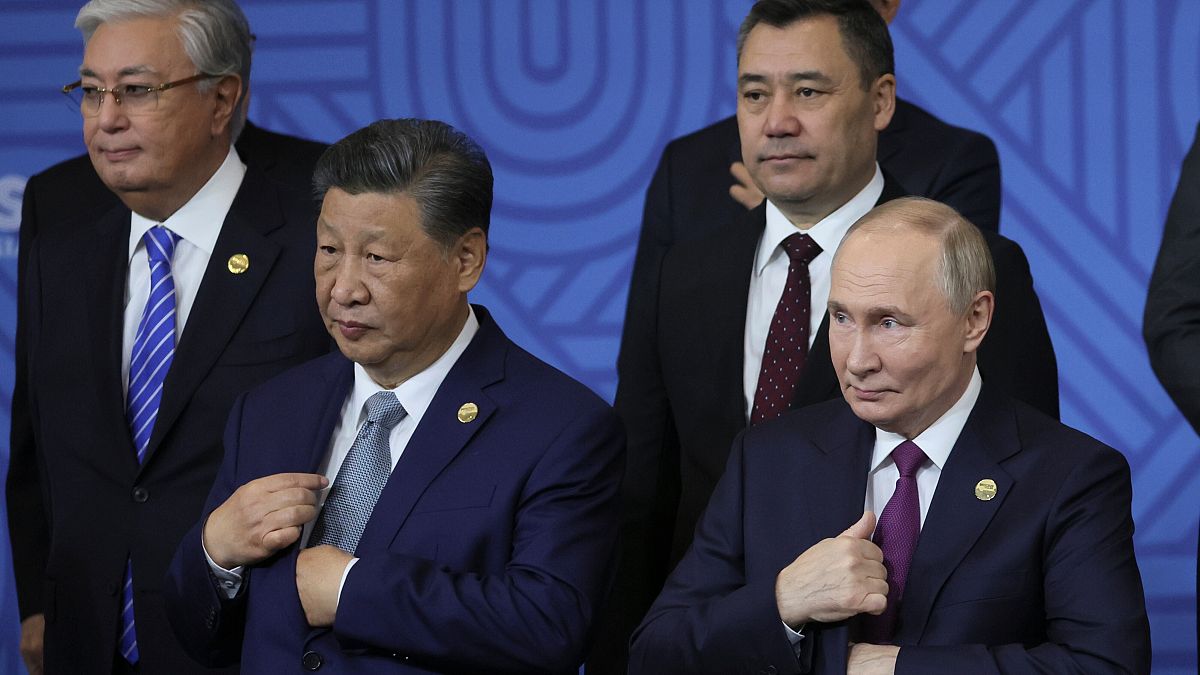The Kazan summit of the BRICS group of nations saw Russian President Vladimir Putin praising the bloc for standing up against what he sees as the West’s oppressive methods, particularly its use of sanctions. Putin accused the West of using these methods to stifle the Global South’s growing power. He specifically pointed to Ukraine as an example, claiming that the country is being used as a puppet against Russia. Putin also called for the creation of a new payment system to bypass Western sanctions.
The joint declaration at the summit emphasized the need for new payment systems that are faster, low-cost, efficient, transparent, safe, and inclusive. This move is seen as a way to counter the impact of what is regarded as illegal unilateral coercive measures, including sanctions. Chinese President Xi Jinping highlighted the bloc’s potential to ensure global security. Xi also mentioned a peace plan for Ukraine that was proposed by China and Brazil, although it was rejected by Ukraine.
The summit also highlighted Russia’s close ties with India, despite India’s reluctance to openly condemn Russia’s actions in Ukraine. Bilateral meetings on the summit’s sidelines saw Putin discussing various issues, including meeting with UN Secretary-General Antonio Guterres. Guterres, despite facing criticism for meeting Putin, emphasized the need for an immediate end to the fighting in Ukraine in line with the UN Charter and international law.
Russia’s Kremlin-controlled media portrayed the summit as a significant achievement that challenges Western hegemony. The inclusion of more countries in the alliance and the large foreign policy event was hailed as a sign of the growing power of the BRICS countries. However, the absence of some leaders from the summit raised questions about the actual strength and influence of the BRICS alliance.
Founded in 2009, the BRICS alliance initially included Brazil, Russia, India, China, and South Africa, with more countries joining or expressing interest in joining since then. The expansion of the alliance has been seen as a challenge to Western dominance, with the bloc representing about half the world’s population. The Kazan summit brought together leaders or representatives from 36 countries, further solidifying the bloc’s position as a global force to be reckoned with.










